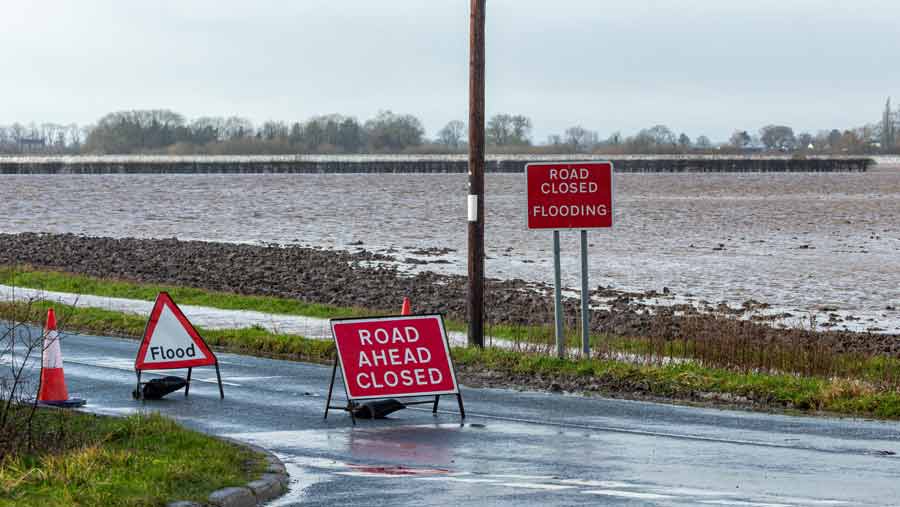Banks offer support to flood-hit farm businesses
 © Anne Coatsey/Adobe Stock
© Anne Coatsey/Adobe Stock Some banks and building societies are offering financial support to agricultural customers affected by recent storms and flooding, including interest-free temporary loans and overdrafts.
Farm businesses hit by flooding should contact their local bank representative to find out if they may be eligible for any support measures.
For example, NatWest Bank is offering affected customers loan repayment holidays, interest rate reductions, overdraft facilities, and temporary emergency loans with no fees.
See also: Flood-hit farmers and households to receive financial support
It is also offering support and advice from specialist bank staff on financing strategies and working capital.
Ian Burrow, head of agriculture at NatWest, said: “The disruption caused by the flooding has the potential to significantly impact planting and crop rotations.
“This is why we encourage customers to discuss the impact on their individual business with their manager to establish if it might be appropriate to consider altering the bank facilities they have in place.”
Similar schemes are often provided by banks, with Barclays having previously provided support to farm businesses affected by flooding through its adverse weather fund.
Lloyds Banking Group has also in the past provided fee-free lending to farm businesses affected by flooding.
Government funding of up to £25,000 has also been made available through the Farming Recovery Fund.
Mark Chatterton, director and head of agriculture at accountancy firm Duncan and Toplis, said: “We thought 2019 was bad – the worst flooding for many, many years – but this truly is unprecedented.
“Fields will now need to be drilled with a spring crop, but available seed is in very short supply: costs of £800/t rather than £300/t are being quoted for spring wheat and barley, for instance.
“Some farmers may have their own seed that can be dressed, but most will not have this luxury because few farms grew spring varieties in 2023.”
Mr Chatterton advised farmers to create a new cashflow forecast, work out the effect the situation will have for the next two years, and find ways to reduce costs throughout this period.
“This might mean putting off capital investments in property or carrying out non-urgent repairs, and farmers should also look to draw on their private capital.
“Meanwhile, tax planning will be important because there will be large bills to pay on last year’s more successful harvest,” he added.
